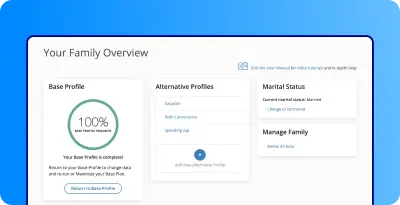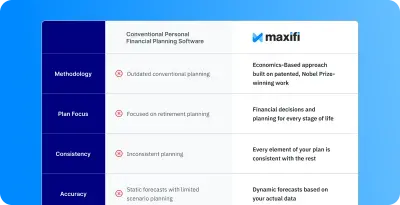Living Will
A living will is a legal document that specifies your medical treatment preferences if you become unable to communicate your wishes due to incapacity, typically addressing life-sustaining treatments, resuscitation, pain management, and end-of-life care decisions. Unlike a last will and testament that distributes assets after death or a living trust that manages property during life, a living will focuses exclusively on healthcare choices while you are still alive but unable to speak for yourself.
Understanding how living wills work, what they cover, and how they differ from advance directives and healthcare proxies requires familiarity with state-specific requirements, medical decision-making processes, and the documentation needed to ensure your preferences are honored.

Key Takeaways
This guide explores what living wills include, how to create one, the relationship between living wills and advance directives, and important considerations in healthcare planning. Whether evaluating healthcare planning options or seeking to understand medical decision-making documents, these educational concepts provide a foundation for informed discussions with healthcare and legal professionals.
- A living will specifies medical treatment preferences if you become unable to communicate, focusing on life-sustaining treatments and end-of-life care
- Living wills differ from wills (which distribute property) and living trusts (which manage assets during life)
- Living wills only take effect when you are incapacitated and unable to make your own medical decisions
- An advance directive is a broader document that includes both a living will and healthcare proxy appointment
- Living wills typically address resuscitation, ventilators, feeding tubes, dialysis, pain management, and organ donation
- State requirements vary for living wills, including witness and notarization rules
- Healthcare proxies can make decisions not covered by your living will but cannot override written instructions
- Free living will templates and forms are available, though professional review may be beneficial for complex situations
- Living wills can be updated or revoked at any time while you have capacity
- Copies should be distributed to doctors, hospitals, healthcare proxies, and family members
What Is a Living Will?
A living will is a legal document that sets out your medical treatment preferences if you are unable to communicate them for yourself. Unlike a will, which distributes property after death, a living will is about healthcare choices while you are still alive but incapacitated. It provides guidance to doctors and reassurance to family members during difficult times. Healthcare planning professionals often discuss living wills for adults of all ages, since these situations can unfortunately happen to any person at any age.
How a Living Will Works
Living wills only take effect when you are unable to communicate your wishes due to injury or illness. Medical providers are required to follow the instructions so long as they are legally valid in your state. Family members can also refer to the document to avoid uncertainty or conflict about what you would have wanted.
People who spend significant time in multiple states often ensure their living will is valid in all places they regularly reside, as requirements vary by state. However, most states honor living wills created in other states, particularly if they meet the originating state's legal requirements.
What a Living Will Covers
A living will typically covers:
- Life-Sustaining Treatments: Resuscitation via electric shock, ventilators, feeding tubes, and dialysis
- Refusal of Specific Treatments: Certain procedures, medications, or interventions you do not want, and you can specify the circumstance, for example if it is beyond reasonable doubt that you will not recover
- Pain Management: How aggressively you want symptoms treated and whether you want to accept or reject certain treatment approaches like opioid medication
- End-Of-Life Care: Comfort measures, palliative or hospice care
- Spiritual or Religious Support: Requests for chaplain services or adherence to faith-based practices
- Organ Donation Wishes: In some states, you can also state whether you are willing to donate organs and tissues after death
In most states, your living will can be extended to cover situations where you have no brain activity or you are expected to remain unconscious for the rest of your life.
Living wills can reflect cultural and religious values, and individuals often discuss their preferences with religious or spiritual advisors to ensure the document aligns with their beliefs.
Understanding Related Healthcare Documents
Living Will vs Last Will and Testament
A common source of confusion involves the distinction between a living will and a last will and testament. A living will addresses medical treatment preferences while you are alive but incapacitated. A last will and testament (often simply called a "will") distributes your property and assets after death, names guardians for minor children, and designates an executor to manage your estate. These are separate documents serving entirely different purposes.
Living Will vs Advance Directive
While the terms "living will" and "advance directive" are often used interchangeably, they are not the same. A living will is the written set of instructions that outlines your preferences for medical care if you cannot communicate this yourself. An advance healthcare directive is the broader legal document which includes your living will but can also appoint a healthcare proxy (or medical power of attorney) as someone who can make decisions on your behalf if situations arise that your written instructions do not cover.
Living Will vs Healthcare Proxy
A healthcare proxy (also called a medical power of attorney or healthcare agent) is a person you designate to make medical decisions on your behalf when you cannot. The healthcare proxy follows your written living will instructions first, then uses their judgment for situations not specifically addressed in your document. The proxy cannot override your written wishes but provides flexibility for unexpected medical circumstances.
Living Will vs Living Trust
A living will has nothing to do with money or assets; healthcare preferences are its sole focus. In contrast, a living trust is a financial document that holds and manages assets during your lifetime and passes them on to beneficiaries.
Living Will vs DNR Order
A Do Not Resuscitate (DNR) order is a medical order signed by a physician that instructs emergency responders and healthcare providers not to perform CPR if your heart stops or you stop breathing. A DNR is typically used for immediate emergency situations, while a living will provides broader guidance for ongoing medical care and various life-sustaining treatments beyond just resuscitation. Some individuals have both documents.
How to Create a Living Will
Creating a living will is straightforward, but the process varies by state. Here are the typical steps to follow:
- Check State Requirements: Laws differ, so review your state's rules on living wills or advance healthcare directives. Many state health departments and bar associations provide official guidance.
- Choose a Form or Template: You can use a state-approved living will form, a health care directive form, or a trusted online living will template. Many government and hospital websites provide free printable forms for living wills or downloadable samples.
- Customize the Document: Fill in your treatment preferences, end-of-life care wishes, and any values or spiritual considerations. Templates are a helpful starting point, but ensure the language reflects your personal choices.
- Consult a Professional if Needed: A living will attorney can review your document to ensure it complies with local laws and covers your wishes clearly. Professional review is commonly discussed for complex medical situations or when state requirements are unclear.
- Sign and Witness: Most states require witnesses to validate your living will. Some states may also require or allow notarization. Follow your state's specific rules to ensure the document is legally valid.
- Distribute Copies: Share the signed living will with your doctor, hospital, and close family members, and keep a copy for yourself. Some people also carry a card noting they have a living will. Some states offer living will registries where your document can be stored electronically and accessed by healthcare providers.
Using free online templates or forms can be a cost-effective way to get started, though professional review is commonly discussed if your situation is complex.
When to Update Your Living Will
Living wills can be updated or revoked at any time while you have mental capacity. Healthcare planning professionals often discuss reviewing and potentially updating living wills when:
- You receive a major health diagnosis or your medical condition changes significantly
- Major life changes occur (marriage, divorce, birth of children)
- Your healthcare preferences or values change
- You move to a different state permanently
- Significant advances in medical technology affect available treatment options
- Your designated healthcare proxy is no longer available or appropriate
- Periodically every 5-10 years to ensure the document still reflects your wishes
To update a living will, you typically create a new document that explicitly revokes the previous version, then follow the same signing and distribution process as the original.
FAQs About Living Wills
Important Considerations
This content reflects healthcare planning laws, living will requirements, medical decision-making procedures, and state-specific regulations as of 2025 and is subject to change through legislative action, court decisions, regulatory updates, or policy changes. Healthcare planning laws vary significantly by state and jurisdiction, with different requirements for living will execution, witness requirements, notarization rules, and healthcare proxy appointments. Living will forms, state registries, and healthcare provider obligations are adjusted periodically and may differ in subsequent years and across different geographic locations.
This content is for educational and informational purposes only and should not be construed as legal, medical, or professional advice. The information provided represents general educational material about living will concepts and is not personalized to any individual's specific circumstances. Healthcare planning laws, living will requirements, medical decision-making procedures, and treatment options vary significantly by state and jurisdiction. The comparisons, examples, cost ranges, document relationships, and situations discussed are for educational illustration only and do not constitute recommendations for any individual's healthcare planning needs. Individual circumstances including health status, medical conditions, family dynamics, state of residence, religious or cultural beliefs, and personal values significantly affect healthcare planning decisions.
Individual healthcare planning decisions regarding whether to create a living will, what preferences to include, how to coordinate with other healthcare documents, and when to update your living will must be evaluated based on your unique situation, including current health status and prognosis, personal values and quality of life preferences, family circumstances and potential decision-makers, state laws and healthcare provider requirements, religious or cultural beliefs affecting medical care, and long-term healthcare goals. What may be discussed as common in healthcare planning literature may not be appropriate for any specific person. Healthcare planning involves complex medical, legal, and ethical considerations that require professional analysis of your complete situation. Please consult with qualified healthcare providers, attorneys specializing in healthcare law or elder law, or estate planning professionals for personalized guidance before making healthcare planning decisions or creating legal documents. This educational content does not establish any attorney-client, healthcare provider-patient, or advisory relationship.
Disclaimer
This article provides general educational information only and does not constitute legal, tax, or estate planning advice. Beneficiary designations, estate laws, and tax regulations vary significantly by state, account type, and individual circumstances. The information presented here is not intended to be a substitute for personalized legal or financial advice from qualified professionals such as estate planning attorneys, tax advisors, or financial planners. Beneficiary rules are subject to change and can have significant legal and tax implications. Before designating, changing, or making decisions about beneficiaries, you should consult with appropriate professionals who can evaluate your specific situation and applicable state and federal laws.




